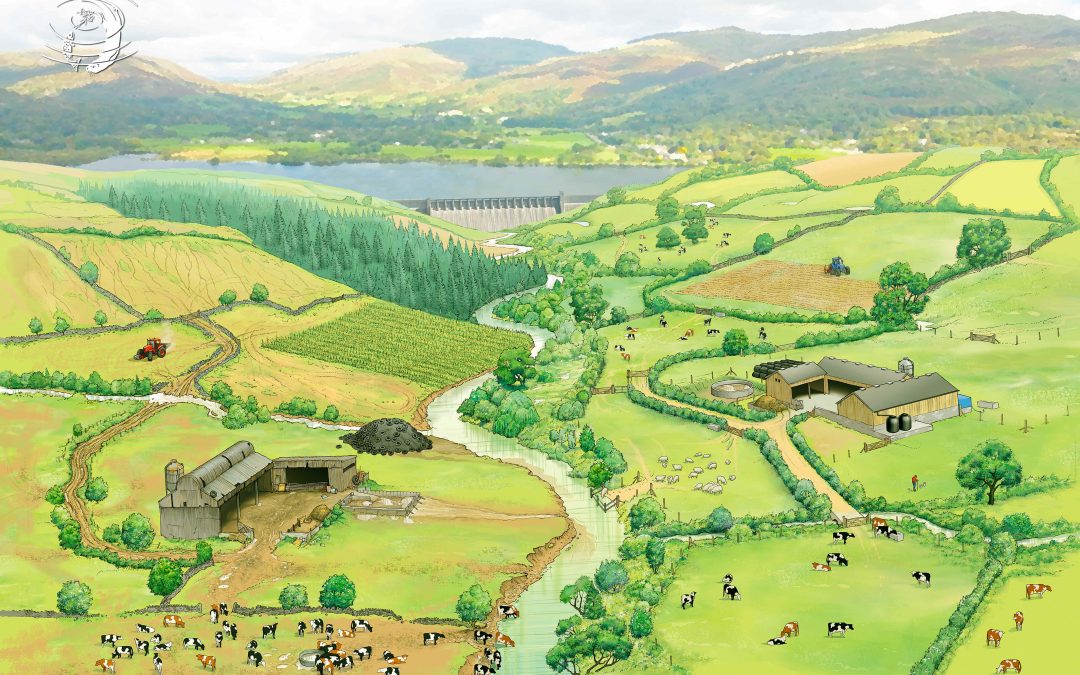Dr Laurence Couldrick, CEO of the Westcountry Rivers Trust, gives his thoughts on DEFRA’s 25 year Environment Plan.
 I have just returned from a meeting in Exeter that involved the environmental great and good from Devon and Cornwall. The topic in discussion? The creation of Defra’s 25-year Environment Plan. Despite the obvious current uncertainties in our political climate, the environmental movement has possibly never been so united. The issues facing leaving the EU will certainly have far reaching impacts across our society; but whilst uncertainty has increased, so have the opportunities. One of the greatest is for the different environmental organisations to come together to sculpt a future regulatory and incentive system that pragmatically promotes environmental and social growth alongside economic performance.
I have just returned from a meeting in Exeter that involved the environmental great and good from Devon and Cornwall. The topic in discussion? The creation of Defra’s 25-year Environment Plan. Despite the obvious current uncertainties in our political climate, the environmental movement has possibly never been so united. The issues facing leaving the EU will certainly have far reaching impacts across our society; but whilst uncertainty has increased, so have the opportunities. One of the greatest is for the different environmental organisations to come together to sculpt a future regulatory and incentive system that pragmatically promotes environmental and social growth alongside economic performance.
The opening gambit for the day, in relation to not being able to secure a future environment overnight, was the notion that developing Gross Domestic Product as an indicator of societies’ growth wasn’t done in an instant and took years to become the dominant government indicator. However, things might not be as far away as this opening point suggests. Gross Domestic Product is the monetary value of all the finished goods and services produced within a country’s borders in a specific time period and behind it is the balance sheet that highlights the state of any business’s capital assets. Currently, however, we only do this for the tradable and tangible goods and services we consume. But what would it look like if we had to account for all the external environmental and social costs within these calculations? For a start it would keep economists busy for a life time, but it would start to highlight the importance our social and environmental assets and how, in many places, they are being slowly and irrevocably eroded. By developing a set of ‘Catchment Accounts’ that highlight the incoming and outgoing economic, social and environmental resources, as well as the state of the assets they rely on, we might find a metric that allows us to account for our ‘Sustainable Gross Domestic Product’ and the Natural Capital on which it is based.
However, even if we are able to create a suitable metric, we still need to highlight the state of these assets and develop a plan to manage them just like any business. So the second question coming from the day is who is best placed to develop and deliver this plan? Do you deliver it top down to ensure consistency, but potentially losing local nuances? Or bottom up, utilizing local momentum and data, but risking national decision makers overriding local choices? The answer, again, is perhaps not too far away and is already in place to some degree. There are many local partnerships, some of which are self-formed and some formed by government, but all of which have a remit of promoting and coordinating resources in the most efficient and effective manner. The challenge is to articulate these partnerships, which cover multiple scales and sectors, to allow a national framework to feed in national priorities and challenges but maintain devolvement of power to permit robust local decisions. This is easy to type but a lot harder to do in reality as we work within a colourful patchwork of evolved processes, structures and ideologies.
It is the morphing of these systems to allow joined up local delivery where the real challenge for government lies. Some will be simple and can be flexed locally, some will be completely inflexible but can be adapted locally, and others should be challenged to devolve responsibility to the lowest appropriate level. The difficulty we face, and where we will all need to work together in an open and honest manner, is to understand which processes are flexible and which are not, as well as understanding the rewards of an aligned system. It is this paradigm shift that will take 25 years and is the real challenge for both government and society.
This Autumn we are hosting a conference on ‘The partnership approach & assessing the benefits of catchment management’. Held in Exeter on the 12th & 13th September, this two day conference will delve deep into the evidence behind the catchment based approach and look at how catchment partnerships have evolved. For more infomation click here
Tweet Share

